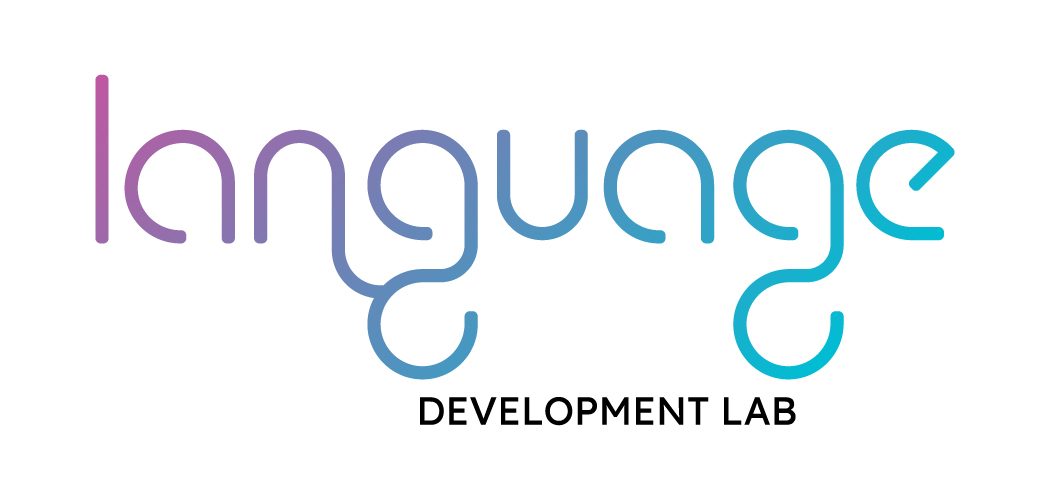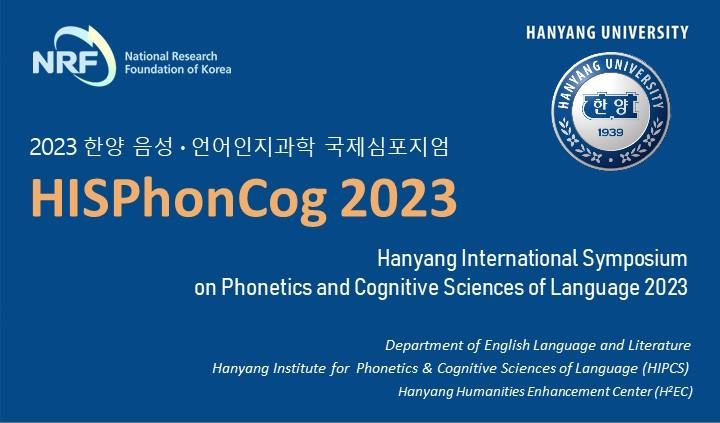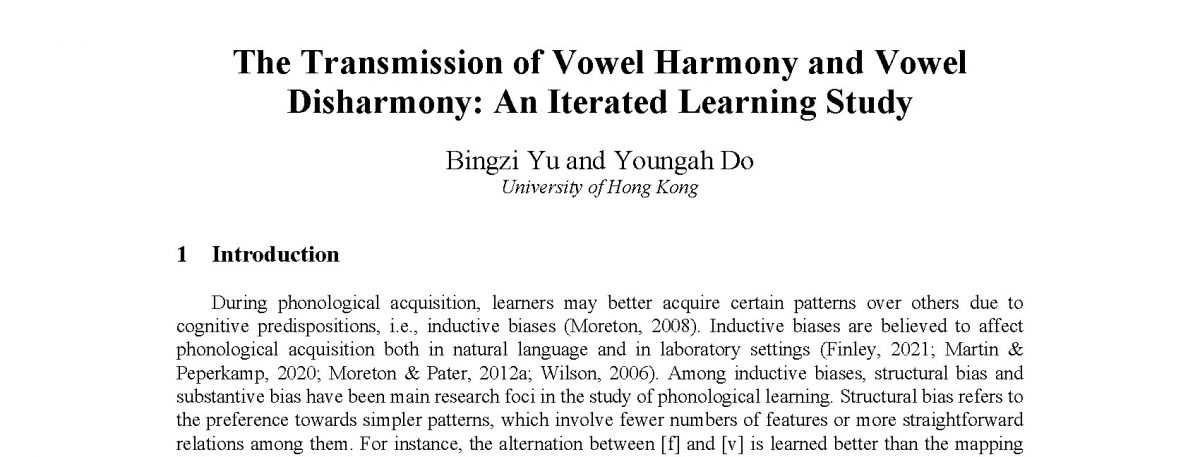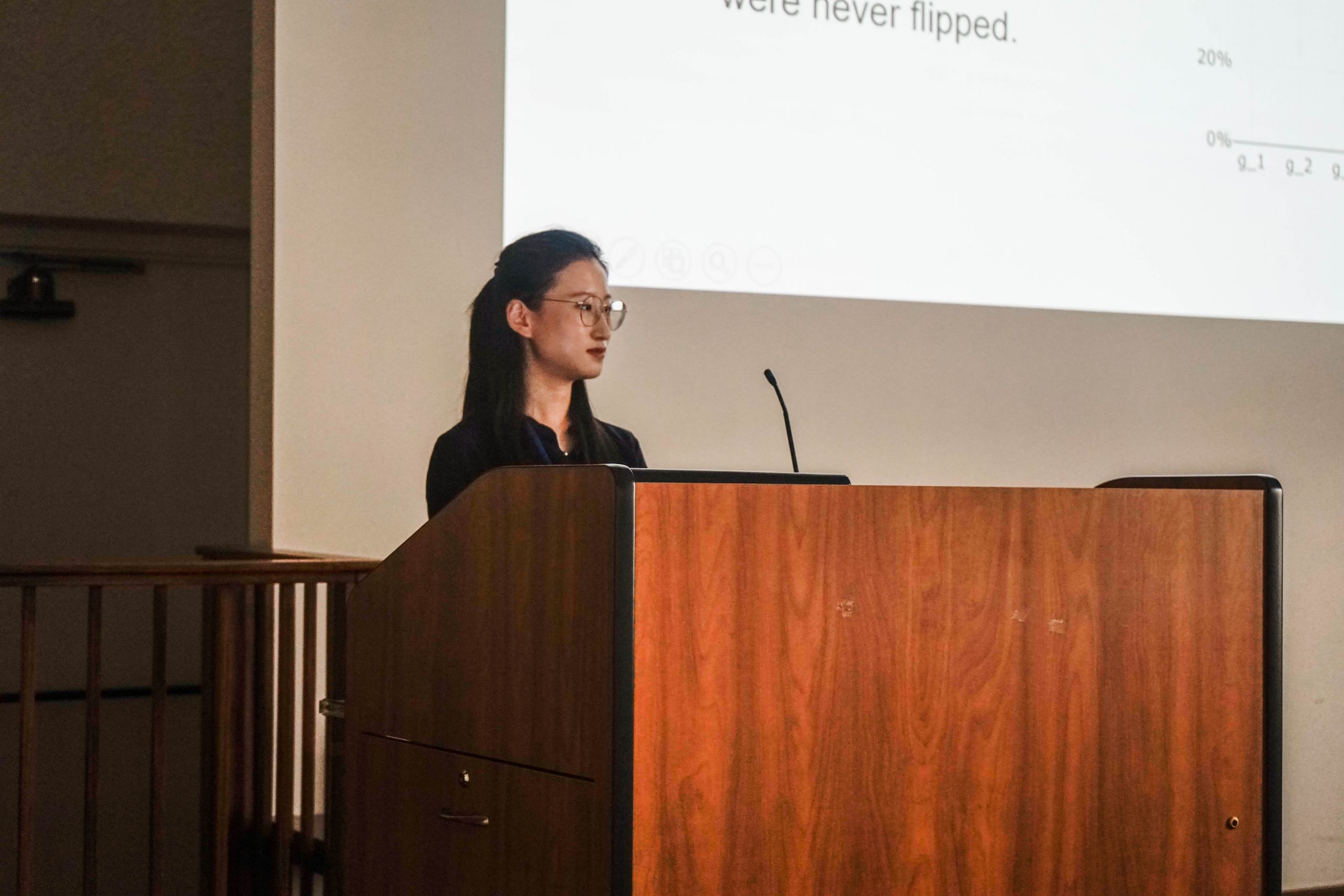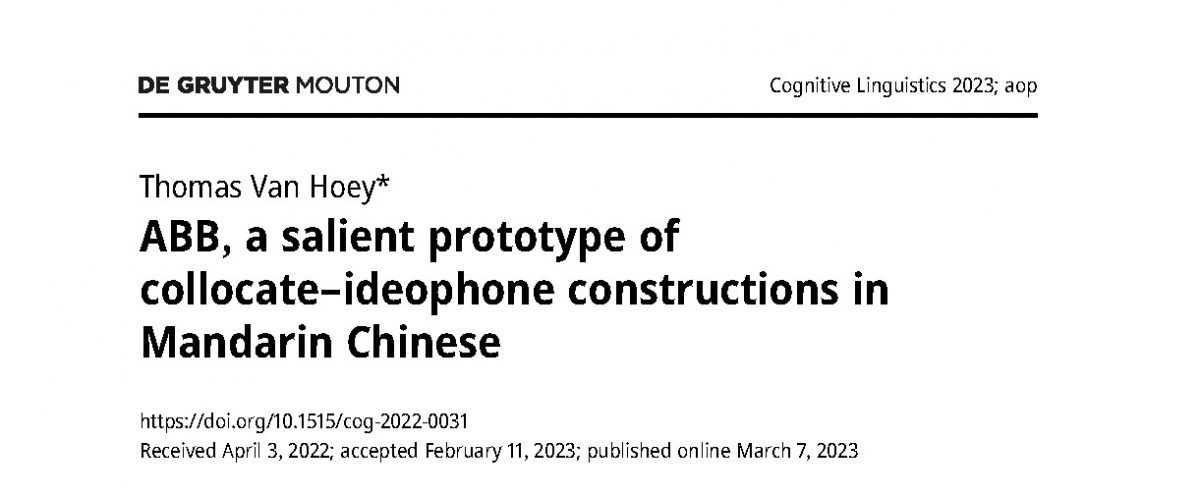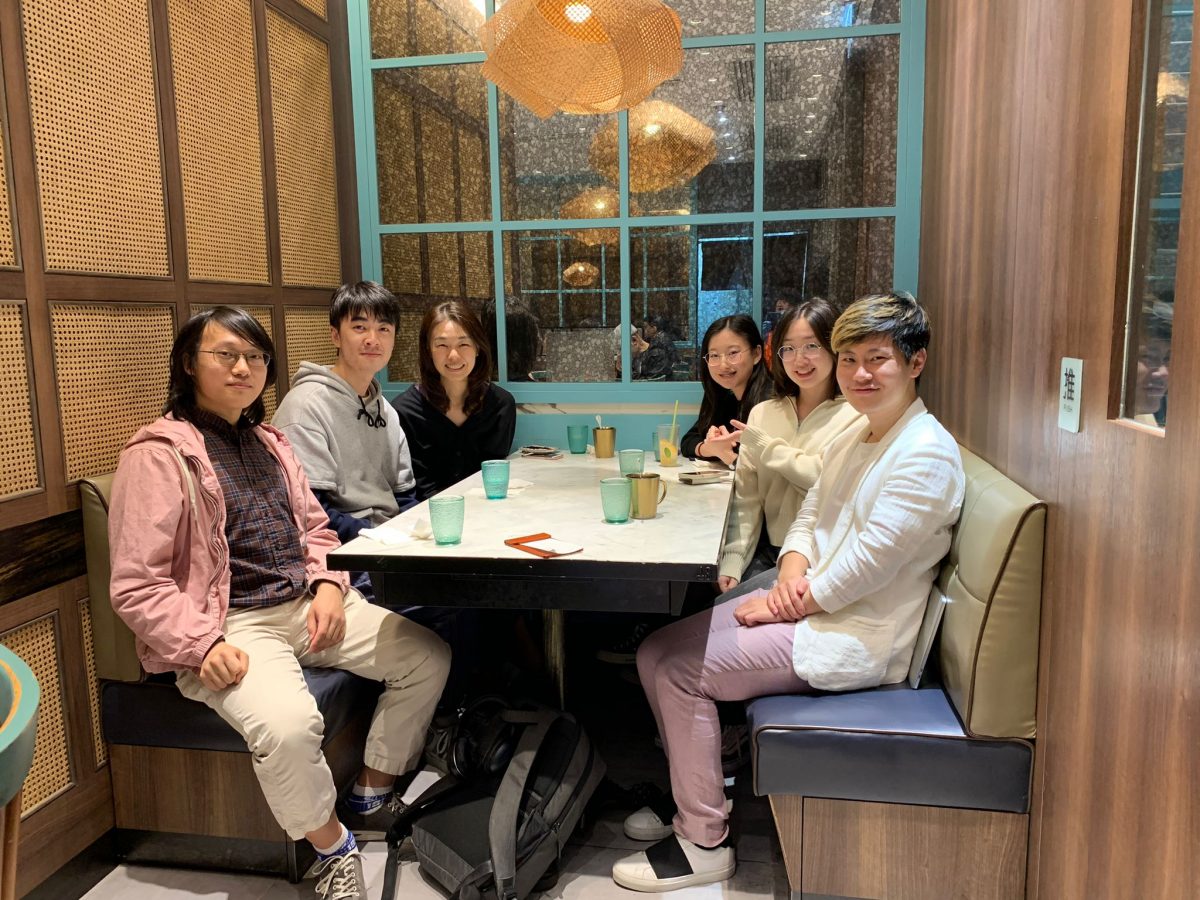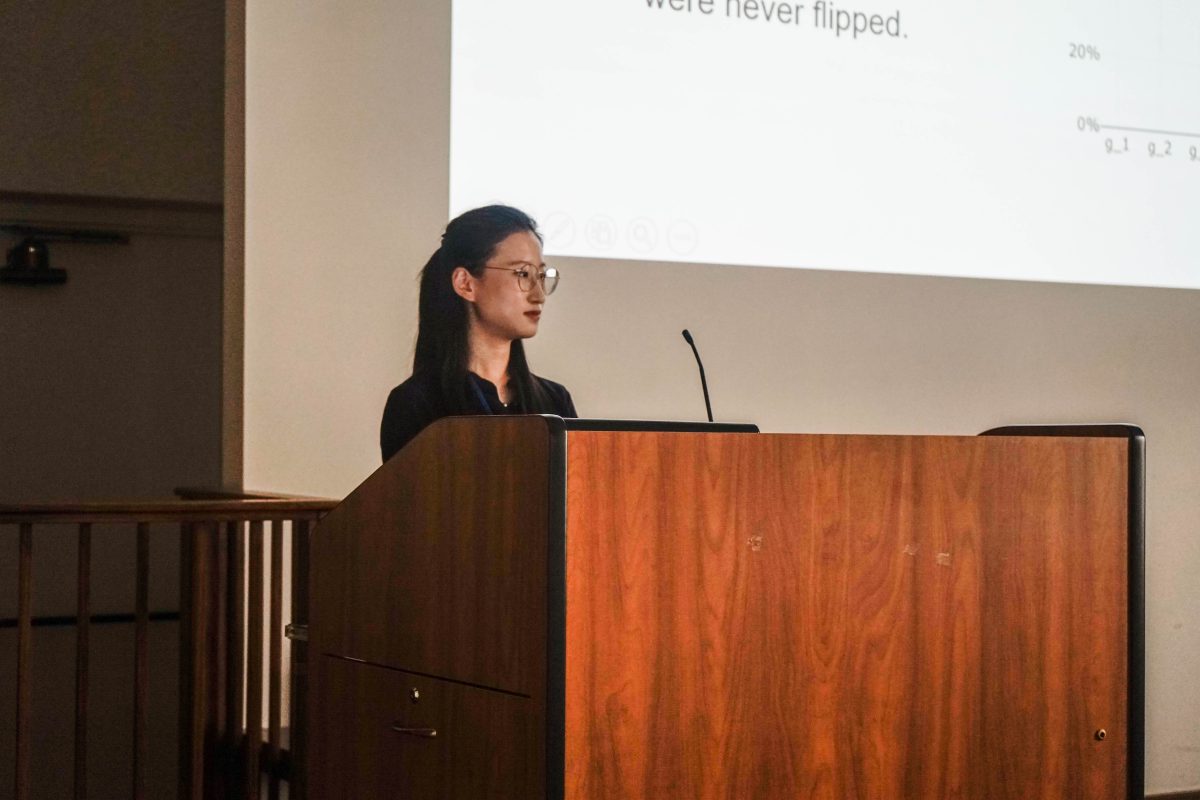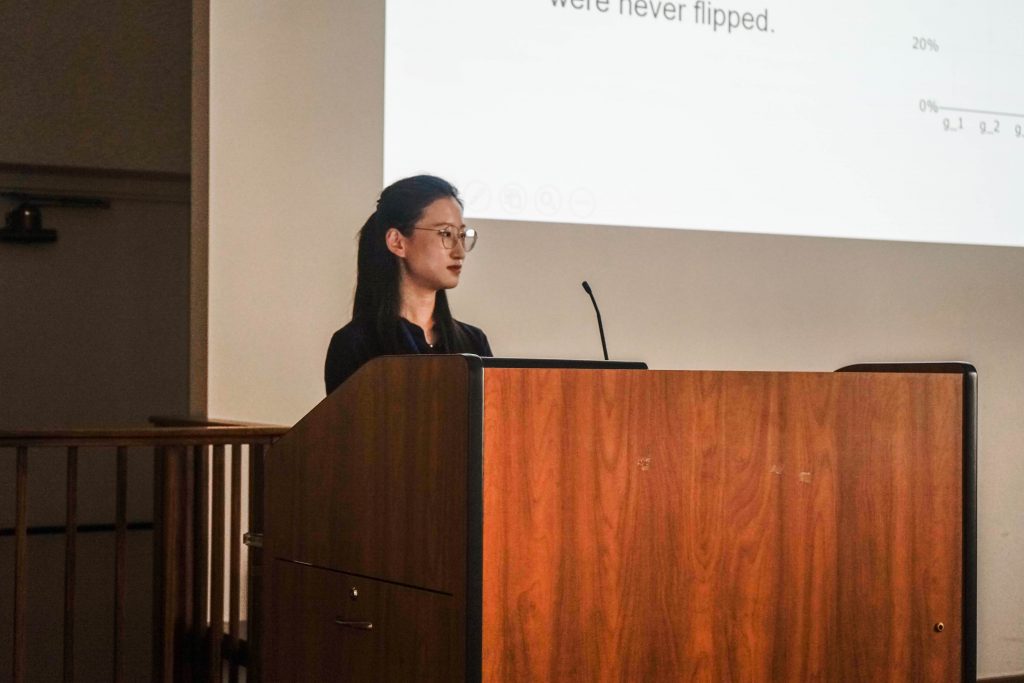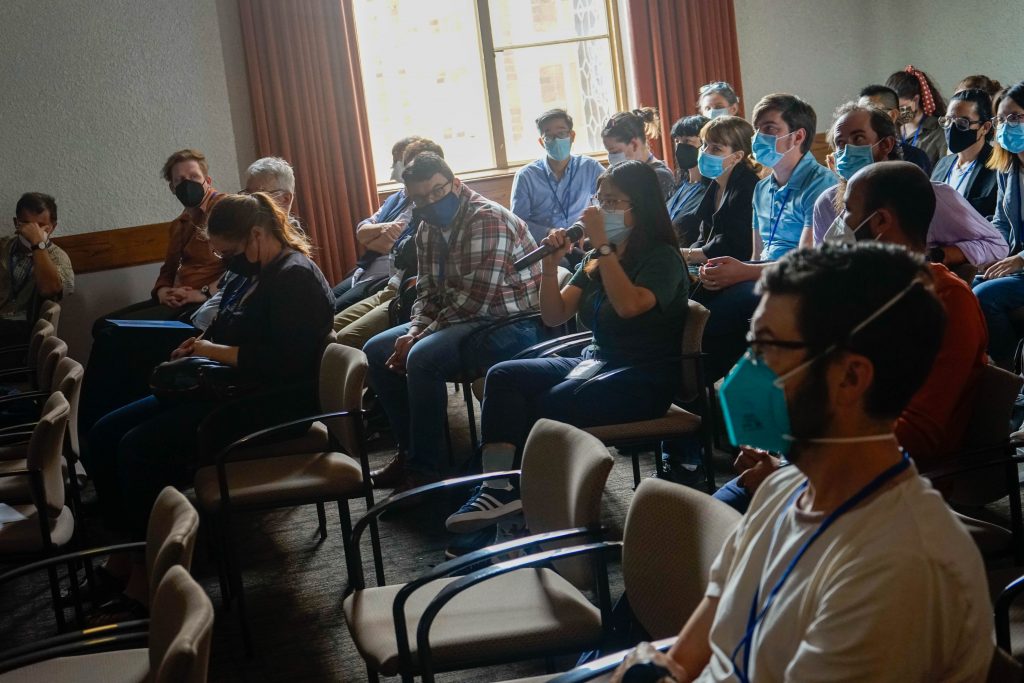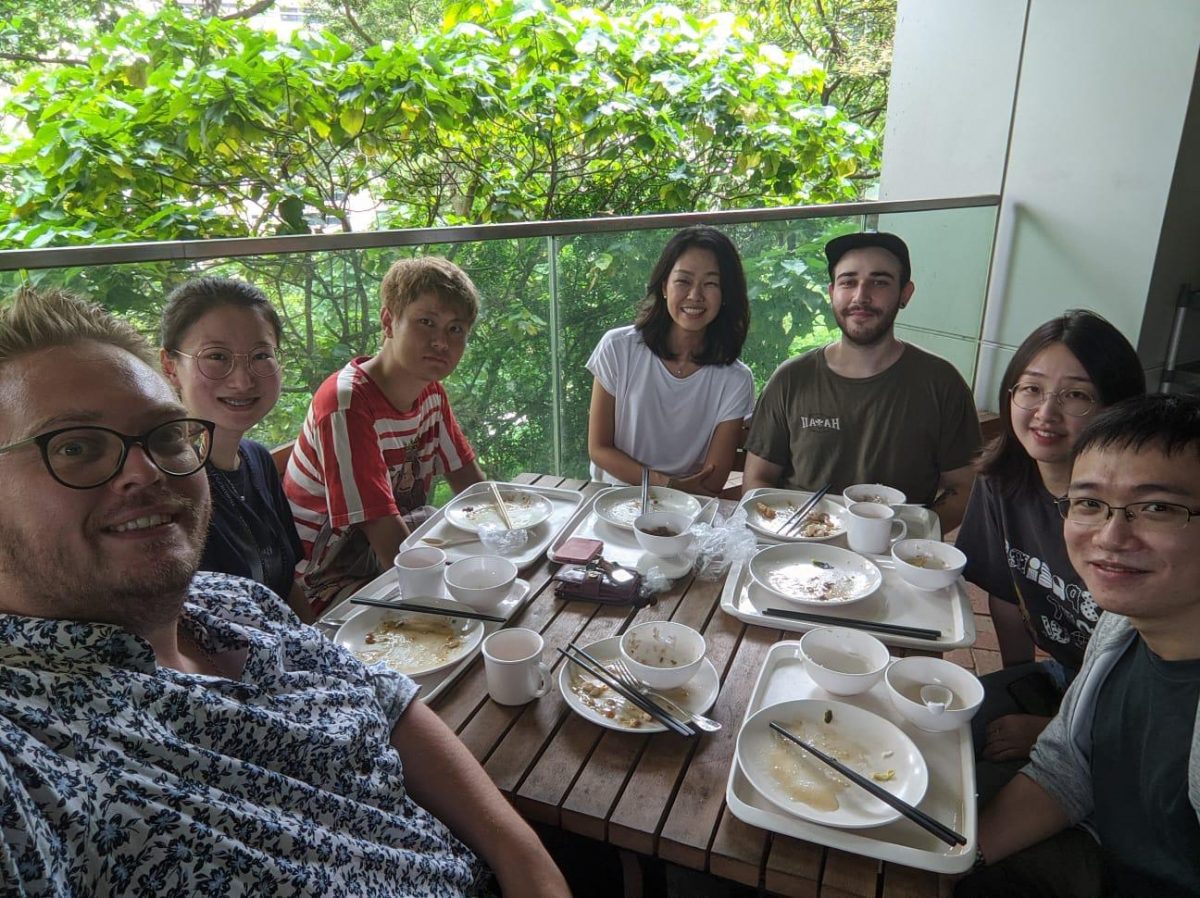Our lab members will present their recent work at the upcoming Hanyang International Symposium on Phonetics and Cognitive Sciences of Language 2023 (HISPhonCog2023) in Seoul!
Jon, Ming, Ivy and Jonah will present “downloadAudiovisual enhancement in clear speech production of English laterals.” It looks at the production of laterals and other coronal consonants in normal and listener-oriented clear speech. The study involved 18 adult native English speakers who participated in a two-part speech production experiment. The findings suggest that listener-oriented speech does not necessarily prioritize auditory perceptibility. Instead, speakers may choose to provide listeners with direct visual cues of a segment’s articulatory/gestural properties, consistent with the inherently multimodal nature of speech perception.
Frank and Youngah will present “downloadBottom-up learning of a phonetic system using an autoencoder“. The study explores the ability of a machine learning model to learn a phonetic system from contextless acoustic input. The autoencoder model was trained on recordings from English and Mandarin speakers and proved successful in capturing the phonetic system of both languages. The study suggests that infants’ phonetic knowledge may not be innate but can be acquired based purely on acoustic information, without relying on language-specific learning facilities. However, the model could not reach phonological knowledge without training on phonological cues, highlighting the indispensable role of phonological information in refining learners’ knowledge on phonetics and phonology.
Changhe and Jon will present “downloadNasality and Nasal Excrescence of the Nasal Vowels in Shanghai Chinese“. It examines the acoustic and articulatory configuration of the Shanghainese nasal vowels. The study analyzed data from six native speakers of Shanghainese and found that the nasal vowels show little nasalization in the first fifth of their duration and steadily increasing nasality thereafter. The findings suggest that the Shanghainese nasal vowels are only partially nasalized, with no clear relationship between the proportion of vowel nasality and duration or presence of the nasal consonant.
